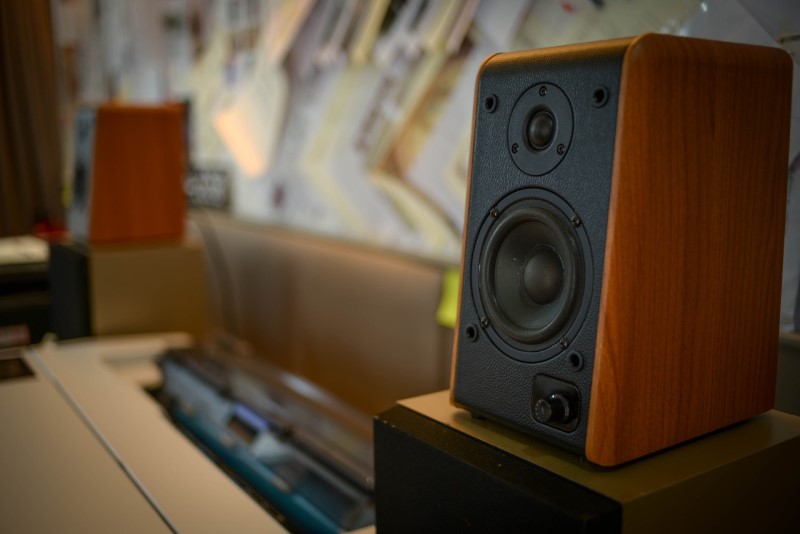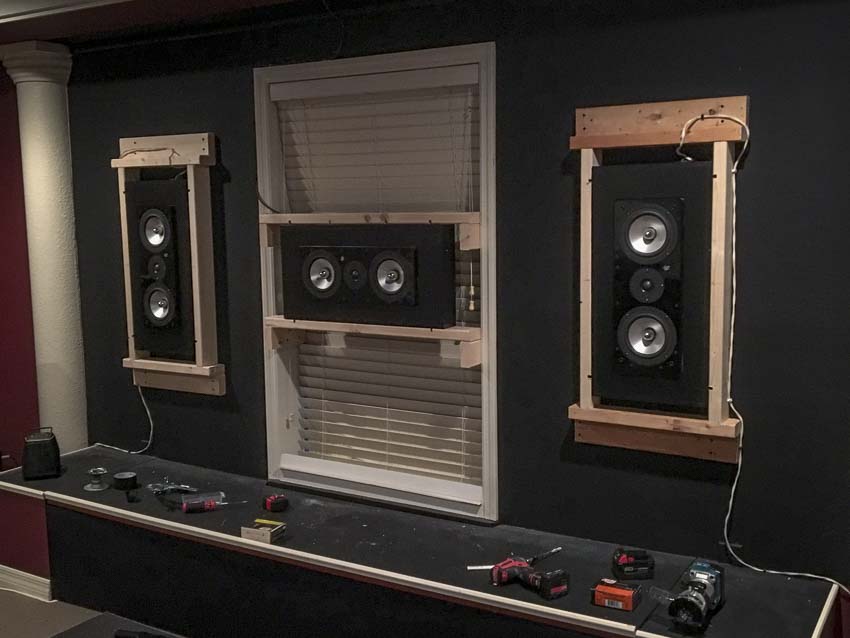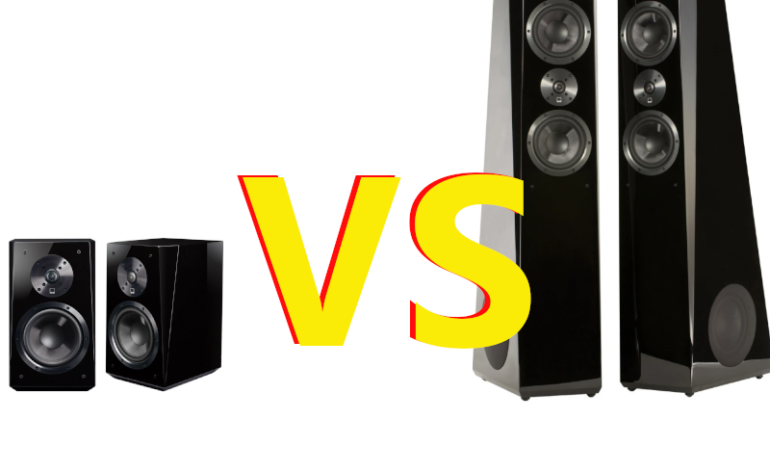Why You Should Buy Bookshelf Over Tower Speakers
We know the prevailing wisdom is that tower speakers are always preferable to bookshelf models. We’ve seen the advice given on forums without a thought as to why. The reality is that most people subscribe to the “bigger is better” mentality. If it has a six-cylinder engine it must be better than a four-cylinder, right? If it has 100 watts per channel, 120 watts per channel must be better, right? More is better, bigger is better, heavier is better…blah. It’s generalizations like this that are a fine way to get an idea of quality without looking too closely. But we all know that generalities don’t apply in every situation. That’s why you should buy bookshelf speakers over towers. Most of the time.
Better Bang for Buck

When we are shopping for speakers, one of the main concerns is price. Budget more than anything else dictates the quality of speaker you end up buying. When you buy tower speakers, you are paying for the extra cabinet that the bookshelf doesn’t need. Yes, they will need a stand. But stands often cost less than the premium that the tower speakers demand.
This allows you to look at premium bookshelf speaker options that might have been outside your budget when you limited your options to towers. This can lead you to own a speaker with upgraded drivers, a more refined design and crossover, and likely an overall better sound. All because you didn’t pay for all the MDF in the tower speaker.
You Don’t Need the Extra Output

It’s true that, in general, tower speakers have more output (get louder) and can often play lower than their bookshelf brethren. That’s true. But you don’t need that extra output or extension. If you are planning on pairing your speakers with a subwoofer, and you should, then the bass will be taken care of by the subwoofer. If you are going to cross the speaker over into the sub, why pay more for the extension?
How far away do you sit from your speakers? If you are like the vast majority of users, you aren’t sitting farther away than 12 feet. Most receivers and nearly all consumer-level speakers can play at reference volume (which is WAY louder than you think) at that distance easily. So unless you are planning on running your system as loud as a movie theater all the time and you sit VERY far away, the extra output is also wasted. Save your money and buy better quality bookshelf speakers over those tower speakers.
Easier Placement

Personally, I’ve recently switched from towers to bookshelf speakers because I’ve found them much easier to place. Have limited placement options? You can mount a bookshelf speaker to a wall or put them on a very thin stand. Try doing that with a bookshelf speaker!
Not only that, when you decide to upgrade (and we all do eventually), you can easily integrate your bookshelf speakers into other positions in your home theater. While some may claim you can use tower speakers as surrounds, they will only be placed properly if they are elevated. Bookshelf speakers can be moved to surround duty by adding a shelf to a nearby wall, stand mounting, or investing in a wall mount.
Adjustable Height
When setting up your speakers, one of the concerns for your front left and right speaker is that the tweeter is near seated ear level. Depending on the type of couch you have, that height might be completely different. Have one of those plush sectionals? Your seated ear height is much different than a European-style couch or a recliner.
With a bookshelf speaker, you can match the speaker and stand so that you hit the perfect height. If you buy tower speakers with tweeters that are too high, you are going to wish you had looked harder at bookshelves.
More Likely to Fit Three Matching Speakers Up Front

Lastly, the gold standard for your front three speakers is to have three identical speakers. Unless you are in a very unusual situation, three tower speakers up front just never works. But three bookshelf speakers? Not only does that work (sometimes), but they have a category of speakers called LCR. These are speakers that can be used horizontally (for your center) or vertically (for your left and right speakers). If you want perfect timbre matching for your front speakers, nothing matches better than three identical speakers.
Conclusion
Yes, we know that tower speakers are very sexy. For some, no matter the logical reasons for buying bookshelf speakers, the lure of the tower is just too great. But if you can resist, you can end up with a speaker that is of higher quality, better sounding, easier to place, and might actually save you a buck or two. It likely won’t because you’ll just spend that budget on better bookshelf speakers, but it could save you money. In theory. Happy shopping!


